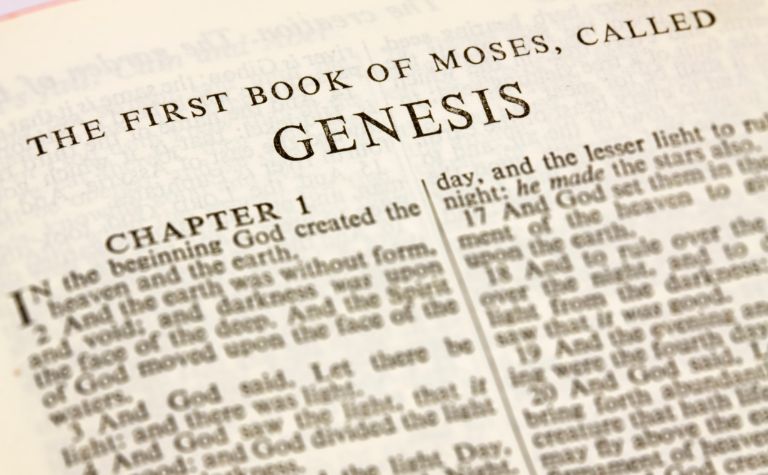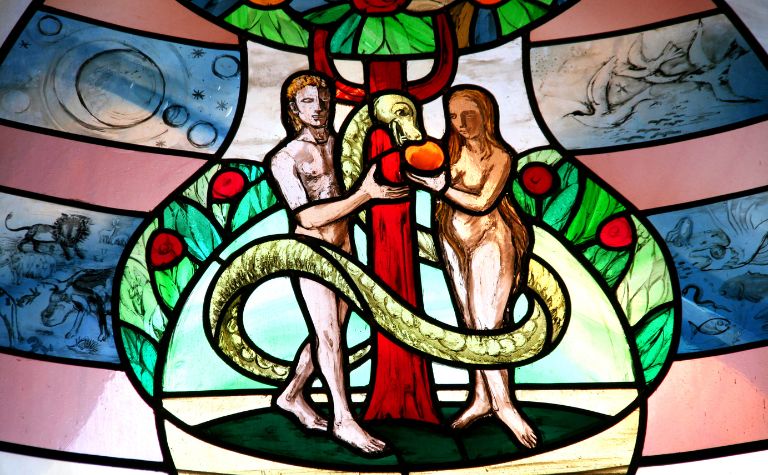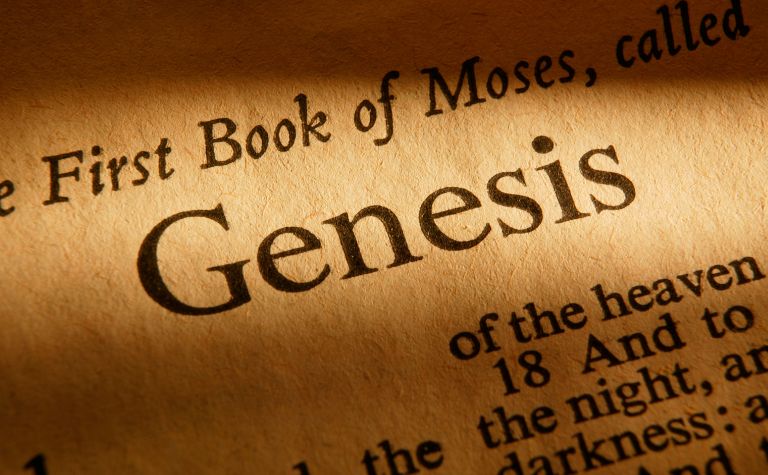Many Bible readers are fascinated with Adam because he was the first man God created. People know him for naming animals, living in the Garden of Eden, and marrying the first woman, Eve. Yet the romantic paradise in which God placed the first couple was only temporary because of their disobedience, leading to personal shame, relational separation, expulsion from Eden, and physical death.
The Bible says that Adam was 930 years old when he died. The book of Genesis mentions his total lifespan in its fifth chapter, which records a genealogy from Adam to Noah. Unlike other genealogies in the Bible, the list of names refers to their death to show the consequences of Adam’s sin.
What references to Adam’s age does the genealogy in Genesis 5 make? Why does it mention Adam’s age when Seth was born? Did Adam live long enough to know the other well-known patriarchs in the genealogy, like Enoch, Methuselah, and Noah? Why did Adam live so long? Keep reading to learn the answers to these questions and others.

Adam’s Life and Death According to Genesis
Genesis 5, which includes the names of the ten Hebrew patriarchs who lived from Adam to Noah, mentions important details about each man. Each description in the genealogy consists of when the man was born, how old he was when he had his son, who his heir would be, and the father’s age at death.
The description of Adam starts with a brief flashback to the creation account. “This is the book of the generations of Adam. When God created man, he made him in the likeness of God. Male and female he created them, and he blessed them and named them Man when they were created” (Gen. 5:1-2; cf. 1:27).
Adam was 130 when Seth was born
Then, the genealogy reveals that Adam was 130 years when his first son, Seth, was born. Like God made Adam in his image, Seth was born in Adam’s image. “When Adam had lived 130 years, he fathered a son in his own likeness, after his image, and named him Seth” (Gen. 5:3).
Genesis commentator Gordon Wenham writes, “This verse makes the point that the image and likeness of God which was given to Adam at creation was inherited by his sons. It was not obliterated by the fall.” [1]
Seth plays a prominent role in Genesis, though the description of him is brief. Significantly, Seth is the second name in the genealogy, not Cain, Abel, or Adam and Eve’s other sons (more below).
Adam was 930 when he died
Before the genealogy in Genesis 5 mentions how long Adam lived, it first describes his lifespan concerning how many years he lived after Seth was born, which was 800.
“The days of Adam after he fathered Seth were 800 years; and he had other sons and daughters. Thus all the days that Adam lived were 930 years, and he died” (Gen. 5:4-5).
| Patriarch | Age at Death |
|---|---|
| Adam | 930 (Gen. 5:5) |
| Seth | 912 (Gen. 5:8) |
| Enos | 905 (Gen. 5:11) |
| Cainan | 910 (Gen. 5:14) |
| Mahalaleel | 895 (Gen. 5:17) |
| Jared | 962 (Gen. 5:20) |
| Enoch | 365 (Gen. 5:23) |
| Methuselah | 969 (Gen. 5:27) |
| Lamech | 777 (Gen. 5:30) |
| Noah | 950 (Gen. 9:29) |
The Bible doesn’t say why Adam and Eve waited so long to have children after the death of Cain (Gen. 4:1-26). The tragedy of losing a child at the hands of a sibling may have resulted in great sorrow for the couple. However, this theory is only speculation because Genesis doesn’t explain why.

The Lifespan of the 10 Patriarchs in Genesis 5
Genesis highlights the age of each father during the year their sons were born because it signified a continuation of God’s work in the world. Adam continued God’s work for future generations through Seth’s birth, positively impacting his legacy.
Because people lived long lives in the ancient world, Adam would have been alive to see the birth of all ten patriarchs except Noah. He would have known Enoch, his great-great-great-great grandson before God took him.
Adam would have known Methuselah, who lived the longest life ever recorded in the Bible. He also could have known Noah’s father, Lamech (not to be confused with the Lamech in Gen. 4.)
| Patriarch | Year Born | Year Died |
|---|---|---|
| Adam | 0 | 930 |
| Seth | 130 | 1042 |
| Enos | 235 | 1140 |
| Cainan | 325 | 1235 |
| Mahalaleel | 395 | 1290 |
| Jared | 460 | 1422 |
| Enoch | 622 | 987 (taken) |
| Methuselah | 687 | 1656 |
| Lamech | 874 | 1651 |
| Noah | 1056 | 2006 |
Of the ten descriptions of the patriarchs listed in Genesis 5, two don’t fit the genealogy’s basic pattern, Enoch and Noah. First, the geology doesn’t mention Enoch’s death because God transported him to heaven. Instead, the passage says, “Enoch walked with God, and he was not, for God took him” (Gen. 5:24).
Second, Noah’s description is incomplete in Genesis 5 because, unlike the others on the list, he is the main character in the next section of Genesis (Ch. 6-9). Noah’s section includes information about his children and his age at death, yet his narrative is much longer because of the importance of the flood story.

Why Did Adam Live So Long?
The Bible doesn’t explicitly say why the patriarchs in Genesis lived such long lives. However, some speculate that because Adam started life with perfect genes, his body lasted longer. Then, his genes were passed down to other generations, enabling them to live long lives. Another theory is that the conditions of the pre-flood world somehow enabled a slower aging process.
What’s clear is that after the flood, lifespans shrink dramatically. For example, Abraham lived 175 (Gen. 25:7), Joseph 110 (Gen. 50:22), Moses 120 (Deut. 34:7), and Joshua 110 (Josh. 24:29). Moreover, Psalms reflects that most people live 70 or 80 years (Psa. 90:10).
Genesis commentator Victor Hamilton writes, “The fact that lifespans diminish rapidly after the Flood may be the Bible’s way of saying that history is regressing rather than advancing.” [2]
References:
[1] Genesis 1-15 by Gordon J. Wenham. Word Biblical Commentary. p. 127.
[2] Genesis 1-17 by Victor Hamilton. New International Commentary on the Old Testament. p. 256.
Recent Posts
Every year, millions around the globe commemorate the birth of Jesus Christ on December 25th, a date synonymous with Christmas and festive celebrations. However, despite its widespread...
The term "Nativity" is often immediately associated with the birth of Jesus Christ and the stories surrounding this event. Yet, the essence of the word encompasses much more than a single...
